Are you considering moving to Switzerland from the UK?
Living in Switzerland is not just about the high standard of living, low crime rates, the stable economy or the low tax rates and fantastic career opportunities — it’s also about soaring mountains and rolling pastures, rich Alpine tradition, cutting edge culture and innovative cuisine, and making the most of the great outdoors.
More than 40,000 Brits have already chosen to make Switzerland their home, are you ready to join them?
Here’s our guide to the most important things you need to know if you’re thinking of making a move to the Alpine State…
Contents
Switzerland Visa Requirements for Brits
Visiting
British passport holders don’t need to apply for a tourist visa for visits to Switzerland of up to 90 days duration, as long as their passport is valid for at least 6 months.
Staying for longer periods of times requires a residence permit, which in turn requires a work visa.
Alternatively a residence permit of up to 5 years may be granted to retirees or those not in employment, provided that they can prove that they have adequate financial resources to cover the cost of living in Switzerland without becoming dependent on welfare benefits, and valid health insurance.
If you intend on remaining in Switzerland longer than 90 days, you must apply for a residence permit within 14 days of arrival at a registration office in your area where you will need to present your passport, employment contract or evidence of adequate financial resources, and rental agreement.
Working
In order to work and stay legally in Switzerland Brits must apply for a work permit.
Work permits are either short or long term, and are granted only from outside the country — i.e. you must have a job lined up before setting foot on Swiss soil.
Your future employer will authorise the work visa on your behalf so that when you arrive in Switzerland your work visa will be waiting for you and you will be able to apply for a residence permit.
Permanent Residency
If you decide to settle in Switzerland permanently, depending on your situation you may have the possibility of being granted a Swiss Settlement permit.
A Swiss permanent residence permit (settlement permit C) allows you to live in Switzerland under the same conditions and enjoy most of the same benefits as Swiss nationals.
Brits are eligible for the C permit providing that they have lived in Switzerland for at least 10 years on residence permit, and that the last 5 years have been spent in the country without any interruption. Once you hold your Swiss Settlement permit you are able to apply for Swiss citizenship if you should want to.
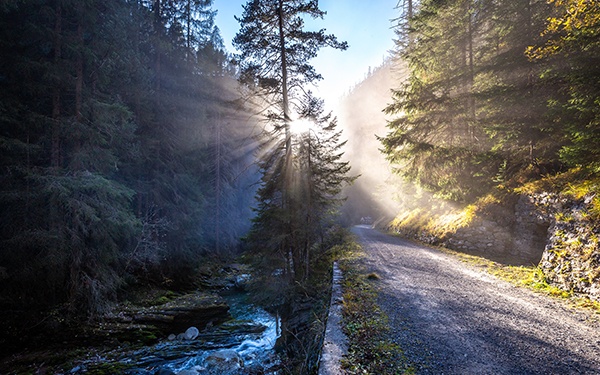
Way of Life in Switzerland
Lifestyle
The expat lifestyle in Switzerland can be very rewarding — particularly for families.
If you are active and enjoy sports, there are oodles of outdoor and winter sport activities, such as skiing, snowboarding, mountaineering as well as hiking, biking, and watersports with a backdrop of breathtaking scenery.
There are plenty of clubs and group activities on offer, although many of these are not English speaking groups, and it can sometimes be tricky for Brits to integrate so even though English is widely spoken it is important to learn the local language.
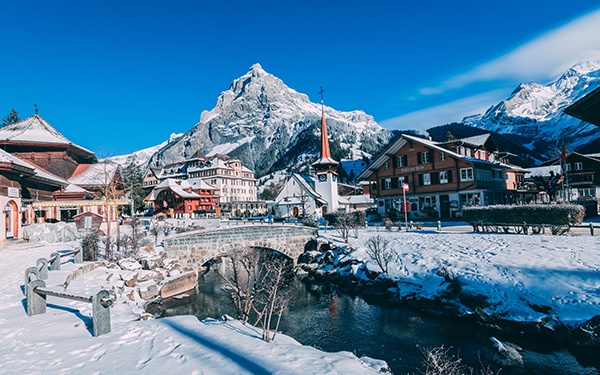
Different languages are spoken in different regions of the country, from German in the north, and central areas, to French in the east and Italian in the south, and there are cultural differences too.
The Swiss are a fairly reserved lot, but in reality no more so than us Brits, and social networking is an important part of daily life.
Much like the Germans, the Swiss place great importance on punctuality and efficiency, so don’t be late for a social or business event.
Switzerland is an extremely safe country with low crime rates and violent crime is particularly rare, although petty crime — mainly targeted at tourists — does occur in Geneva and larger cities.
Swiss urban areas are generally clean, orderly and compact, with good infrastructures and services. Be aware though that just like back in the day in the UK everything shuts down on Sundays.
Getting Around
Switzerland’s public transport systems are safe, reliable and efficient, making it a breeze to get from place to place.
The country’s rail system is excellent and extensive, so this is the form of transport of choice for long journeys.
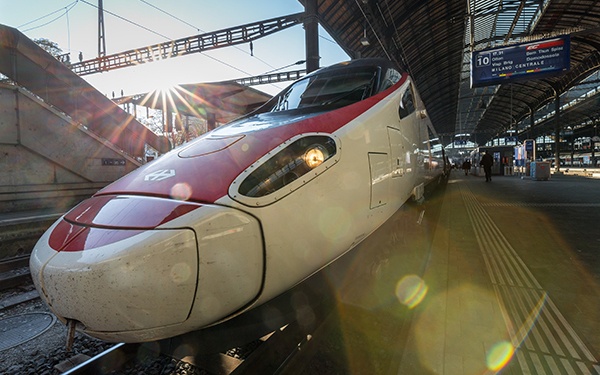
There are both private and public rail networks which offer affordable ticket prices. Switzerland also boasts some of the world’s most scenic train routes which traverse sublime landscapes of mountains and lakes. The Swiss PostBus network has timetables synchronised with train arrivals and departures, and covers travel routes to other towns, rural areas, and less accessible mountain areas, with fares being priced similarly to train tickets.
If you plan to do a lot of travel around the country, it’s well worth investing in a Swiss Travel Pass which gives you discounted travel on many railways, intercity bus routes, ferries, and free entry to hundreds of museums.
Cable cars and funiculars are widely used in mountainous regions, and to navigate Switzerland’s majestic lakes and rivers there are steamers operated by Swiss Federal Railways.
In towns and cities there are buses, trams, trolleybuses, and also taxis, although the latter tend to be expensive.
Driving in Switzerland
Public transport is so good in Switzerland that you don’t really need a car to get around, however discovering the country under your own steam can be a real pleasure, and Switzerland has some of the safest roads in Europe as Swiss roads are well constructed and maintained with clear and easily understandable signposting.
The rules of the road must be respected at all times. Drive on the right and keep your headlights on at all times, and give priority to traffic approaching from the right.

There are European car hire companies in all major cities and towns, but you usually need to be over the age of 25 and have a credit card in order to rent a vehicle.
Brits living in Switzerland can use their UK driving license for 12 months, after which time it is necessary to convert it to a Swiss license. Be aware that in winter some mountains roads are closed due to bad weather.
To travel on major roads and motorways drivers are required to pay a fee of 40 Swiss francs which grants you access for 14 consecutive months.
Weather in Switzerland
Switzerland generally has a moderate climate with 4 distinct seasons — spring from March to May, summer from June to August, autumn from September to November, and winter from December to February.
Both the Alps and the Atlantic Ocean have an effect on the country’s climate, and temperatures vary depending on altitude.
Most Swiss towns and cities are situated on the central plateau, where winters are cold but summers warm at around 23 to 25 °C.
Higher up in the mountains temperatures drop significantly, and at 1200 to 1500 metres above sea level, precipitation during winter predominantly falls as snow.

Fog is common in low lying areas during the winter. To the south of the country winters tend to be milder and summers hotter, reaching highs of around 30°C, although there are also often thunderstorms in summer and heavy rains in autumn.
Many parts of Switzerland are subject to a warm and dry wind coming down from the mountains known as the Föhn. It blows from the south over a large part of Switzerland, leading to sudden increases in temperature, and it’s more frequent in spring and autumn.
Cost of Living in Switzerland
Lifestyle
Switzerland is well known for being one of the most expensive places in the world to live, but it’s important to bear in mind that taxes are low and wages are high, which can offset a lot of costs.
Zurich is ranked as the most expensive city on the planet and 21% more pricey on average than London.
Take a look at this video if you want to get an idea for organising your budget in Zurich:
In general, total household consumption expenditure in Switzerland is around 60 percentage points higher than the European Union average. That said there are ways of economising your monthly budget, it all depends on the kind of lifestyle you want to lead.
The average price for groceries for one person for a week is around 75 to 100 CHF, which is about £60 to £80. Meat and local cheese can be particularly expensive.
When it comes to eating out prices aren’t cheap, but there are budget options available, particularly in ethnic restaurants. Alcohol is also fairly pricey, with a pint of beer in a bar costing the equivalent of around £6, and a cocktail around £13. If you fancy going to a club be prepared to pay anything around 50 CHF, or £40.
Public transport can be expensive, but less so than owning a car — particularly as there are some excellent travel passes available which offer great savings.
Utilities including gas, electricity and water in a 1 bed apartment cost an average of 150 CHF per month, equivalent to around £118.
Rent
With the exorbitant price of real estate in Switzerland, the majority of people choose to rent, but this too can be very expensive and can take a big bite out of your monthly budget, so it’s worth trying to negotiate rent as part of your employment contract.
Properties outside of major urban areas are less costly if you are prepared to make the commute.
The average cost of a one bedroom city centre apartment in Geneva for example, is 3000 CHF (£2350) per month. In general, rental prices are roughly 40% lower in the UK compared to Switzerland.
Healthcare
Healthcare in Switzerland is of an exceptional standard with a wealth of medical facilities using the latest technology, as well as one of the world’s lowest patient to doctor ratios and highly trained nurses and doctors.
Not all treatments are state funded however, and medical care is very expensive.
Expats living in Switzerland are required to pay into the Swiss health insurance scheme plus take out private healthcare and accident insurance once they are an official resident and have received their permit.
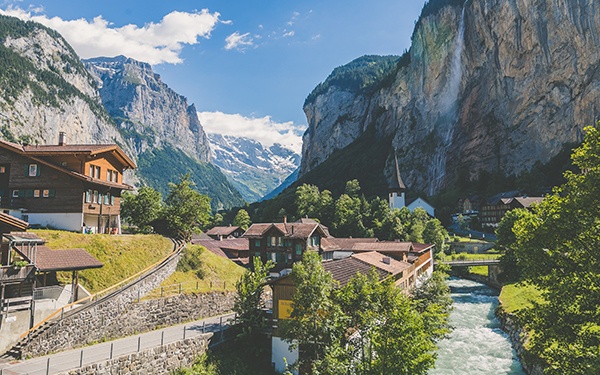
Schooling
State education is excellent in Switzerland, and is entirely free.
It can be a good option for younger expat children who will pick up the language quickly, but older children may find it more difficult to integrate.
As such, many expat parents prefer to enrol their children in one of Switzerland’s many international schools which follow a UK curriculum with lessons taught in English.
The drawback to this is that school fees can be high and will often involve additional costs such as school transport, supervision, and uniforms.
Popular Areas for Brits
Geneva

Glittering on the shores of its expansive eponymous freshwater lake, Geneva exudes culture, charm, wealth, luxury, and elegance.
This buzzing cosmopolitan, multicultural metropolis has everything you could possibly want from a city, including leafy parks and gardens, a quaint UNESCO old town with winding cobbled streets and historical architecture, fashionable boutiques, bars, and cafés, world class restaurants, fascinating museums and galleries, and more.
It also has some of the country’s best international schools and numerous international corporations which employ large numbers of expats.
Zurich

The biggest city in Switzerland oozes wealth, but it is not just an epicentre of finance and big business.
Situated where Lake Zurich meets the Limmat River, this city has a medieval heart, a rich history, and a vibrant culture. It’s renowned for its gastronomical delights as well as its pulsating nightlife, and there are expats and students from all around the world living and working here.
It also boasts an exciting contemporary arts scene and exudes an undeniably cool vibe.
Bern

Switzerland’s picturesque capital city, Bern is built around its Unesco World Heritage listed Old Town, brimming with medieval architecture, fountains, museums, wonderful restaurants and atmospheric bars.
This uber relaxed city is compact but in a beautiful setting with surprises around every corner.
Lausanne
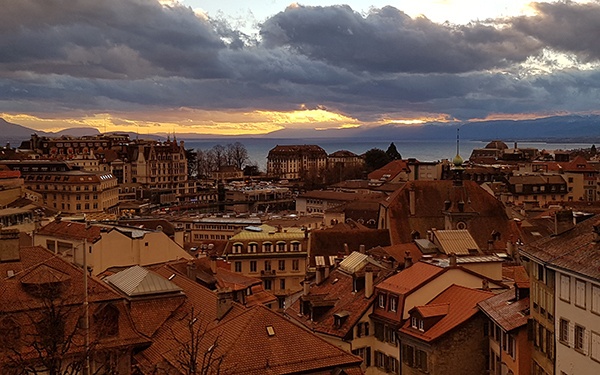
The grandly Gothic city of Lausanne is the second largest city on Lake Geneva, and is considered one of Switzerland’s most beautiful cities.
Built on three hills, surrounded by vineyard covered slopes, and with the Savoy Alps as a backdrop on the opposite shores of the lake, this is a visually stunning but also dynamic city with a hip, positive vibe which is constantly reinventing itself.
Basel
Set on the magnificent Rhein River, Basel is known for its world famous annual arts festival, Switzerland’s most famous carnival, and myriad museums and galleries.
In addition the city centre boasts a romantic old town, stunning architecture both ancient and modern, a lively bar scene, and fabulous restaurants.
Ticino
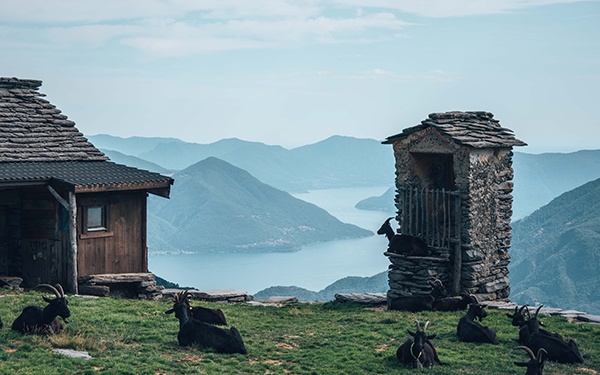
Ticino is ripe with Italian flair, from the local lingo to the warm climate, the elegant baroque architecture and the delicious cuisine.
In an enviable location nestled at the foot of the southern Alps at the edge of Lago Maggiore, glamorous Ticino is a place to kick back and watch the world go by, shop till you drop, explore the nearby lakes and valleys, or wine and dine on fabulous Italian cuisine.
Jobs in Switzerland for British Expats
The majority of jobs for British expats can be found with international companies based in Zurich and Geneva.
Switzerland attracts highly skilled experts in technology, science, banking, pharmaceuticals, IT, hospitality, and biotechnology, however competition for jobs is tough and generally only the finest applicants are accepted, so be prepared to brush up your CV.
If you are fortunate enough to be offered employment you can expect to receive a high salary, but you will be expected to work hard for it.
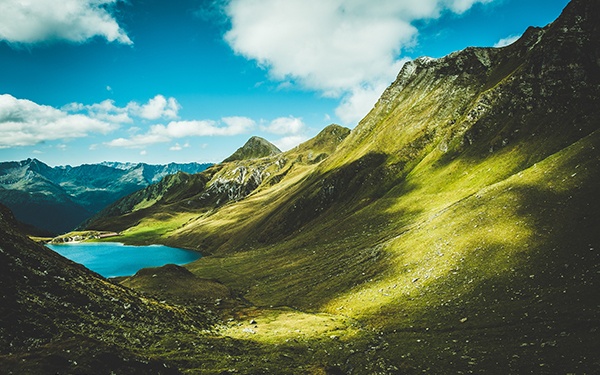
Are you planning a move to Switzerland from the UK?

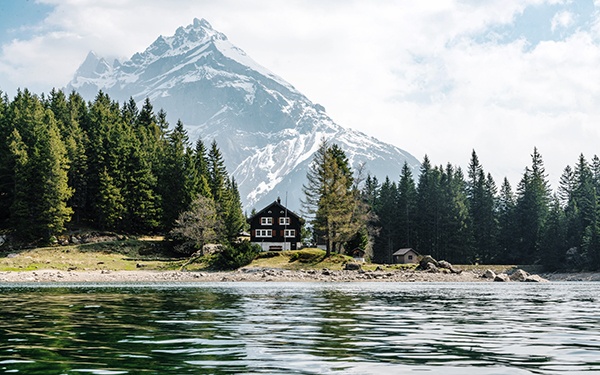
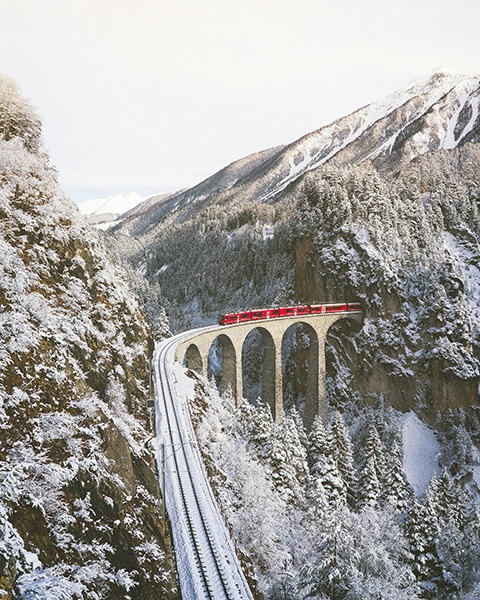




1 Comment
brilliant advise I might moving along with family